Newcomers belong to Berlin like the jam in sticky local treats Pfannkuchen — even if they are sometimes annoying. We probably wouldn’t stay, either, if the weird and wonderful sides of life here didn’t vastly outweigh the downsides. After all, most people come to Berlin to escape the rat race and small minds. Not for nothing the Austrian composer Franz Suppè said: “You’re crazy my child, you must go to Berlin.” Here, more than anywhere else, you can be just what you want, whether wildly debauched or supremely laid-back. In celebration, we’ve compiled 12 things that people new in Berlin immediately love.
Neighbours don’t care what time you got home last night

No matter what time you stumble up the stairs at home in Berlin, as long as you don’t puke in the stairwell, no one cares whether you’ve just spent two days at Berghain or given a lecture on the role of poststructuralism in Foucault’s works. Anonymity remains one of the great advantages of the big city.
But you don’t always have to remain anonymous here: if you’re looking for community, you can get involved in neighbourhood associations or help build a raised bed in the backyard — there are interested neighbours almost everywhere who’ll join in.
Berlin is living history
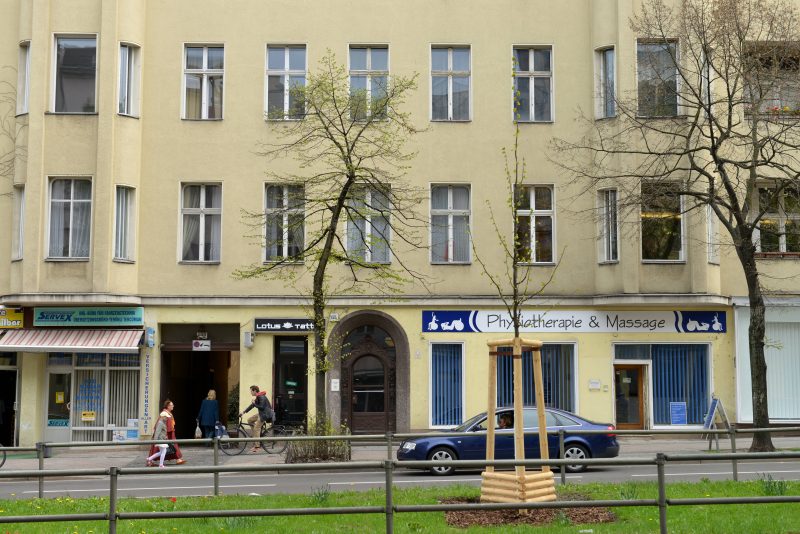
Berlin breathes history like nowhere else. More often terrible than beautiful, as the Stolpersteine (‘stumbling stones’ — engraved brass stones embedded in the pavement) for the Jews murdered by the Nazis or the Berlin Wall Memorial remind us. But when you walk through the wide streets of our city in the right mood, the cobblestones, the drinking fountains and the old houses take you on a journey through time. Generations of tenants have already lived in our apartments, hauled opened the heavy entrance doors on their way home.
In Schöneberg you can picture David Bowie strolling the streets. And where the Stolpersteine lie, you should ask yourself who these people were, what they liked, how they lived. Because Berlin offers that kind of food for thought.
A highly punctual local transport system
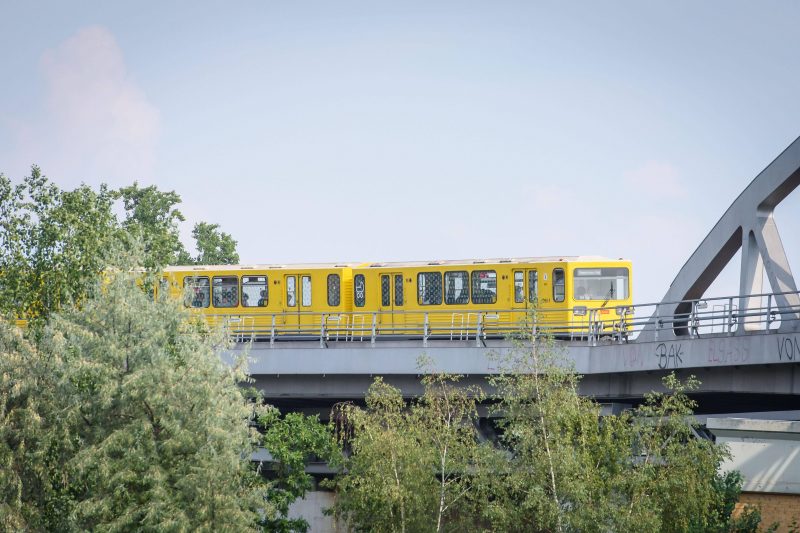
Even though we, the newbies, are almost as good at complaining about overcrowded Ringbahn trains and the BVG as old-school Berliners, we secretly love public transport in Berlin. There are U-Bahn trains that come every four minutes — and even punctual ferries. We’re not used to that. Because we come from cities like London, where the underground system suffers from regular meltdowns: trains disappear from departure boards, then turn up crammed so full your only hope is to squeeze under a banker’s armpit.
Or we grew up in places where not even a shared taxi, let alone a bus, runs on Sundays. Or evenings, or even every weekday. Perhaps, if you’re lucky, one comes on Saturday afternoons. Berlin, on the other hand, seems to us like a wonderland of travel possibilities. Even on Tuesday nights at 3.30am, even in deepest, darkest Reinickendorf, the night bus faithfully turns the corner.
Most people understand ‘walk left, stand right’
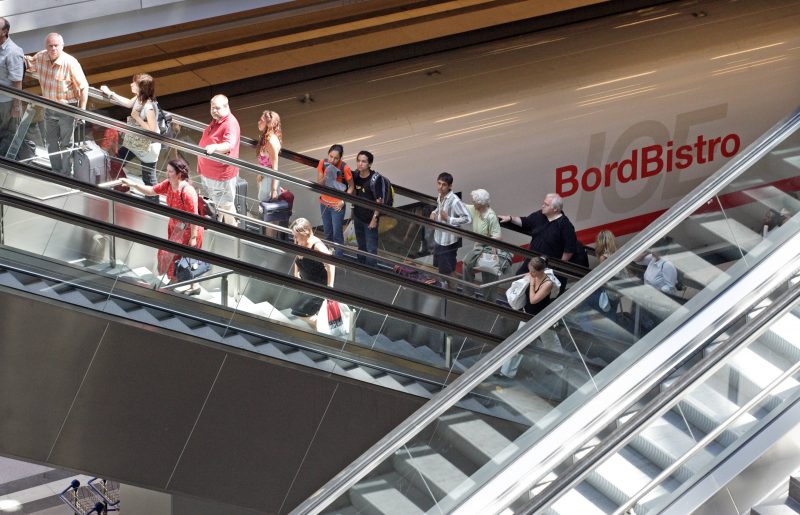
In other cities you might think that the concept ‘walk left, stand right’ is as difficult to grasp as quantum mechanics. Even in Berlin, not all users of public transport seem to have understood this by any means — but certainly more so than in many other places.
And if they haven’t, we simply deploy our best Berliner Schnauze (‘Berlin snout’) and express our displeasure with a scathing tut or steely, uncomfortably long, glare.
Eat decent international food and still afford your rent
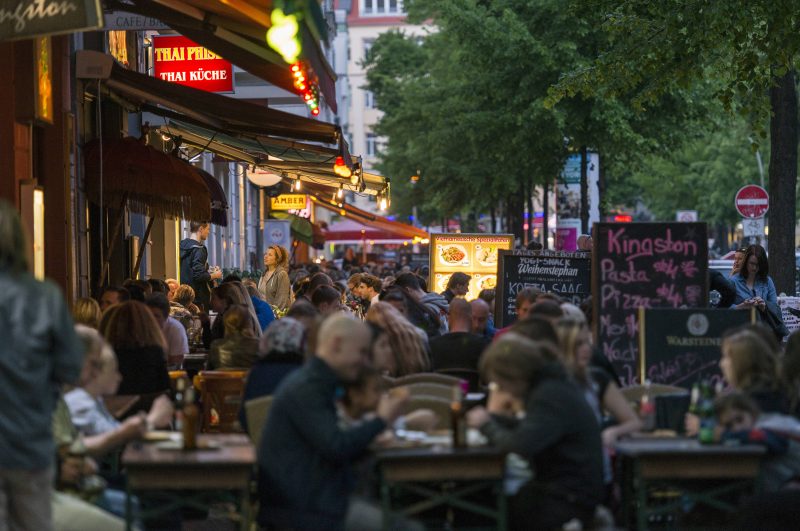
Berlin might not have a long-standing reputation as a destination of culinary excellence, but it boasts increasing numbers of world-class restaurants — including several Michelin stars. But what makes this city a gastro treasure trove is the accessibility of decent, authentic food from its established immigrant communities and a revolving door of enterprising newcomers.
Try getting the same quality of Phở, Shawarma or Sudanese falafel for the equivalent of 5 Euros in London, Paris or New York and you will remain hungry. Sure, not every Döner stand or pizza parlour offers Michelin-worthy meals, but what you get for your money makes dining out regularly in Berlin an enriching part of life even for those on a budget. Which is certainly not the case in those other international capitals (looking at u, LDN).
Spätis
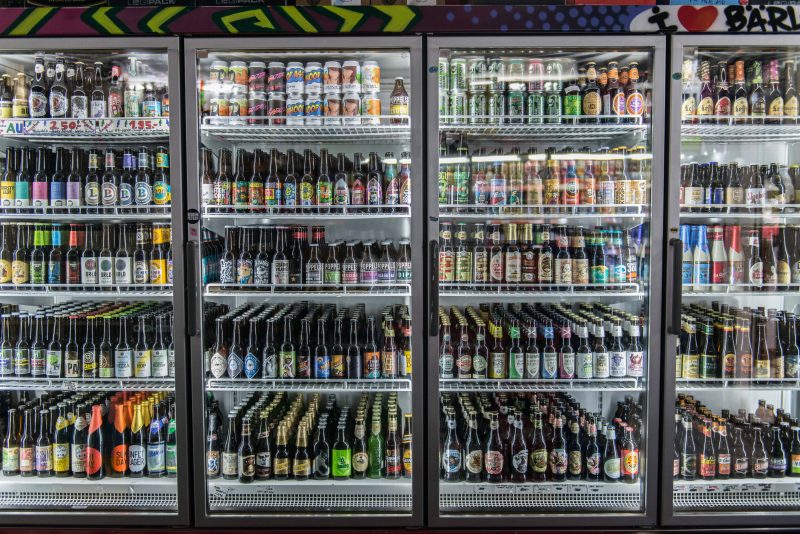
To be fair, there’s no need to explain why Spätis (late-opening convenience stores) appear in this list. Of course they do. But we don’t wish to withhold praise from such truly deserving establishments. Here’s a list within a list that shows why Berlin’s Spätis are the best:
They’re always open (yes, there’s technically a nationwide ban on Sunday opening. But we’re in Berlin, so who cares? Didn’t this ban have something to do with God anyway?)
- There are countless kinds of beer
- Spätis are your saviour when you need toilet paper, cheese or coffee on Sundays.
- If you want, you can conduct an entire conversation with one word: When the cashier asks you “Alles?” (“Everything?”), the correct answer is, simply: “Alles!”
The magic of the Hinterhof
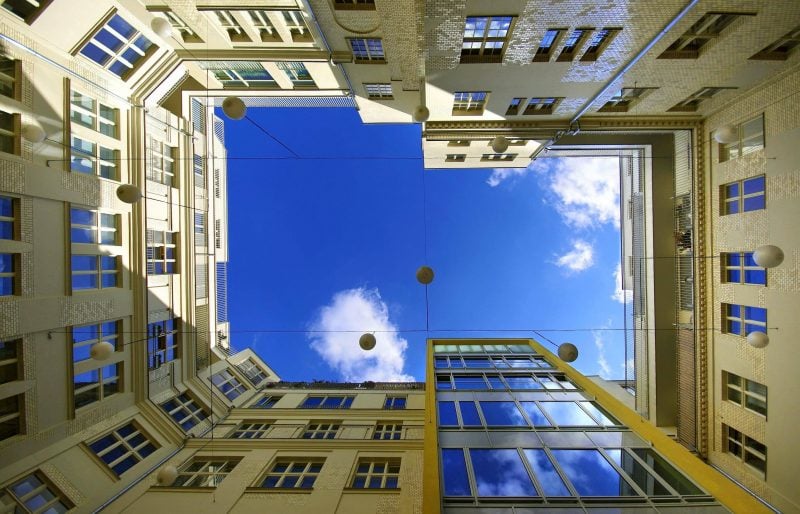
Nothing comes close to the atmosphere in Berlin Hinterhöfe (backyards) on a summer evening around 8pm. It gives you a feeling of inner warmth when you push open the heavy doors to be greeted by a tangle of voices and sounds. You then enter a zone that is more private than the street and yet not completely cut off from the hustle and bustle of the outside world.
From the third floor, the clatter of plates, from the window below the smell of sautéeing onions streams out, and, in the back building, someone is playing the piano. Somewhere in the mix there’s a TV show for children and the hubbub of play. An ashtray and a smoker stand at the entrance to the back building. And above all this, a rectangle of sky shining blue.
All that water
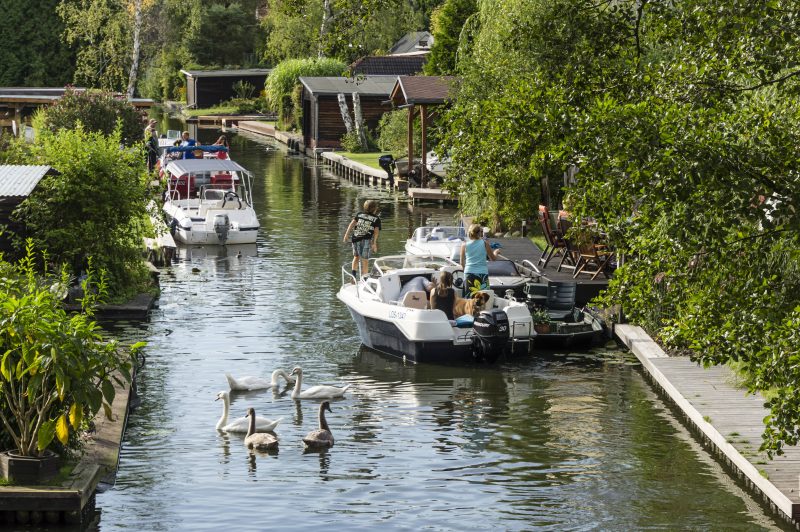
Considering the fact that Berlin is located *nowhere* near the sea, there’s an abundance of water here. And water is known to make a city more liveable. There are more than 1,600 bridges in Berlin — more even than Venice has to offer. Some of them so beautiful that you don’t just want to walk over them, but also linger there to watch the unfolding sunset. But even away from the bridges, water shapes our city: whether Klein Venedig (Little Venice) in Spandau, the Landwehrkanal or the Spree.
Club culture
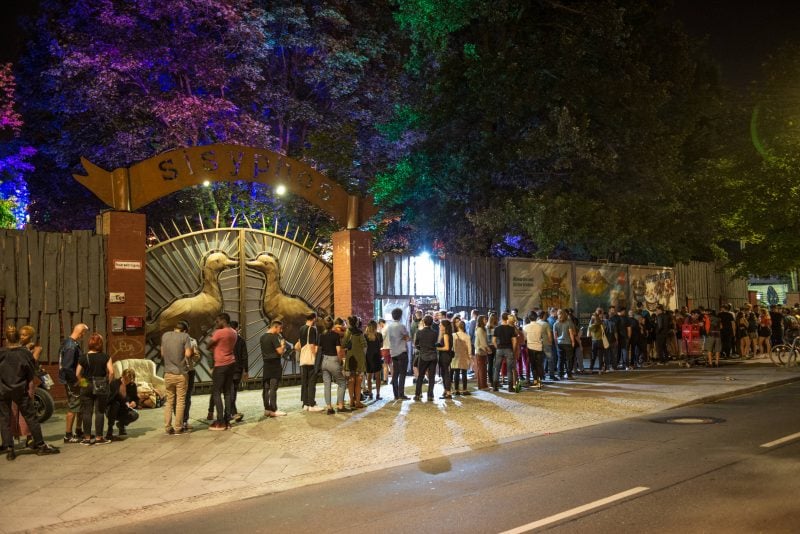
Okay, cards on the table: how many of you moved here because of Berlin’s club culture? If the clubs were a reason for your move, that’s absolutely understandable. Techno has shaped Berlin like pizza has Naples. No wonder: after the Berlin Wall fell, the city offered an incredible volume of free spaces in which people could realise their own ideas of clubbing in a wasteland of freedom. It wasn’t about chic interiors or fancy drinks, but about music and partying, dancing and watching the sun rise together.
Even while the freedom diminishes and techno has long since become mainstream, partying is still the most fun in Berlin. Because there are so many different clubs, because nobody looks at you funny on the U7 in the morning with your saucer eyes and smudged make-up, because the best DJs still like to come to Berlin. During the corona pandemic, even our #unitedwestream is the best. Sorry, rest of world.
Each district has its own character
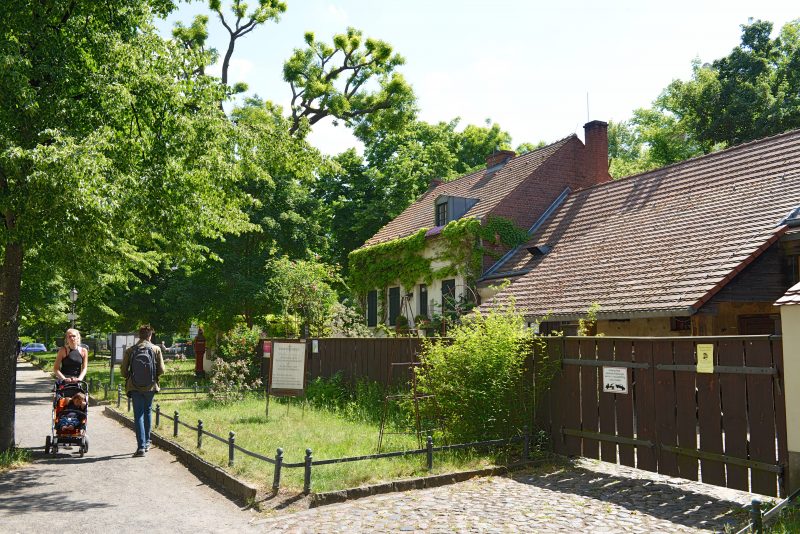
There is hardly a city to which the saying “know one, know all” applies less than Berlin with its various districts and suburbs. Just because you’ve been living in Neukölln for a year does not mean you know Berlin. And that’s a good thing. Even after several years — no, decades — of living in Berlin, you can still discover corners you’ve never seen before. And, depending on which district or part of town you’re in, it’s sometimes like you’re not even in Berlin at all.
It’s not all clean
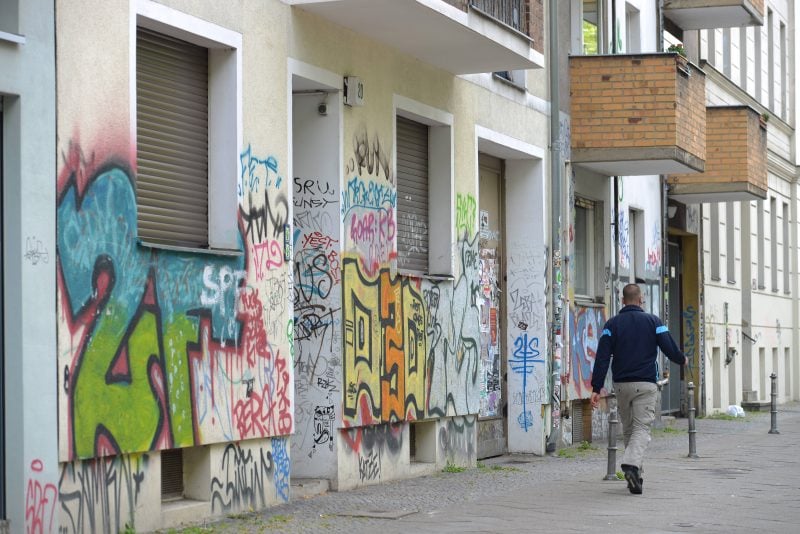
Some Berliners may complain about unkempt parks, old sofas on the street or urine in the U-Bahn station. Okay, the latter really isn’t pleasant. But if you come from a place where picket fences are the order of the day, then a little Berlin laissez-faire will do you a world of good. Then it’s fun to take in the colourful tags on the doors and walls while walking through Kreuzberg. Or spontaneously acquire a bedside table from the street.
In some towns and cities it’s forbidden to walk on the grass. Thank you, Berlin, for letting plants in parks like the Landschaftspark Schönholz grow the way they want to. And for the naked people sunbathing in your parks, and the bass throbbing through the trees.
The cultural diversity
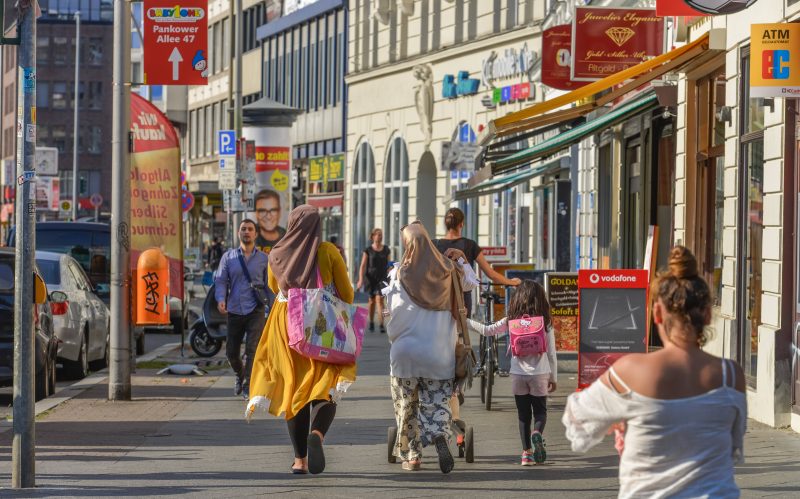
Finally, the most important thing to remember is that most newcomers love Berlin’s cultural diversity. On the one hand, it’s the variety of theatres, cinemas, readings and concerts that the city has to offer. But above all, we mean the many people of different cultures who gather here and live side by side. When you walk along Badstraße in Wedding, Sonnenallee in Neukölln or Schlesische Straße in Kreuzberg, the most diverse languages can be overheard.
The feeling that you don’t yet know everything about the world, but also about the cultures that are native to Berlin, makes life here that little bit more exciting. It’s even more beautiful when you can watch the cultures mix and new things emerge. Like Döner im Brot (kebab in bread, invented in Berlin). How boring would life be without kebabs and without people who grew up a little differently than you did?
Translated from original text by Xenia Balzereit
And what of all the Brits currently in Brexit-limbo in Berlin? According to recent figures, more Brits are applying for German citizenship than any other group.
[smbtoolbar]




